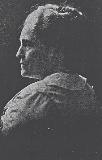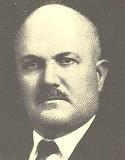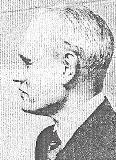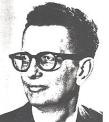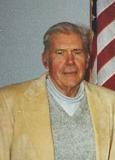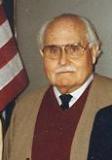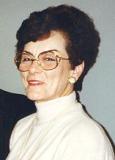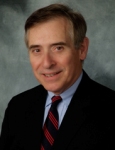The History and Civics Department was created by the State Board of Education on July 14, 1899 with Principal Dwight B. Waldo teaching both history and civics. Classes originally taught included History of England, History of the United States, History of Greece and Mediaeval and Modern European History. The first female professor in the department was Catherine Maxwell, who taught from 1904 until her death in 1918. With with coming of Lew Allen Chase in 1919, there was an infusion of research and publications. He was one of the best-known professors in the department from the early days. Chase remained department head until retirement in 1944.
During these years, the traditional United States and English history courses were expanded with courses on Latin American history, Europe after World War I, and others. The direction of the department remained constant until the 1960s. All during these years, the department never had more than 2-3 members.
The boom years of the 1960s brought changes. In 1962, the Department of History and Social Sciences was split up and the History Department became independent. The increased enrollment of these years caused a need for additional faculty to handle the large sections. Beginning in the mid-1960s, the number of faculty substantially increased. Faculty were hired to cover various geographical areas of history: Asia, Americas, United States, African, European, Middle East and others. The new faculty published more than in the past.
A number of organizations and a publication have been developed sine 1969. In May 1969, the Omicron Mu chapter of Phi Alpha Theta was formed on campus. In the early 1970s, an NMU History Club was formed which ran in competition with Phi Alpha Theta. By the late 1990s, the latter organization dominated the scene. The journal The Round Table was published (1991-1993). It not only provided an outlet for student and faculty publications, but it also allowed students the opportunity to try their hands at publishing. In 1998, the NMU History Association was established by a group of enthusiastic students.
In the late 1980s, the department, in cooperation with the Michigan Bureau of History, developed a living history program at Fort Wilkins State Park Complex in Copper Harbor. This has been a successful enterprise. In conjunction with this program, the department has also created internships to provide students with hands-on experience.
From the 1960s until 1994, the department had a master's program. In June 1967, Jim Carter, formerly of Communications and Marketing, received the first graduate degree in a straight history curriculum. In May, 1985, a Military and International Services Masters Program was established. The idea was to capitalize on the officers at K.I. Sawyer Air Force Base who would come into the program. Due to inadequate funding the program was suspended. The department approved a minor in Public History in 1999. During the Winter Break of the 2004-2005 academic year, the department was moved from Magers Hall to the Cohodas building. During the summer of 2016 the department moved to its current location in Gries Hall.
Since that time, the NMU History Department has employed a wide range of professors and faculty, and continues to work toward improving history at NMU and the instruction students receive.
Department Chairs or Heads
|
1899-1904 |
|
|
1904-1918 |
|
|
1919-1944 |
|
|
1944-1957 |
Albert H. Burrows |
|
1957-1963 |
|
|
1963 |
Eugene Whitehouse (acting) |
|
1964-1968 |
|
|
1968-1970 |
|
|
1970-1975 |
|
|
1975-1980 |
|
|
1981-1988 |
|
|
1988-2002 |
Barry L. Knight |
|
2002-2011 |
|
| 2011-2015 |
Chet DeFonso |
| 2015-Present |
Keith Kendall |

NMU History Faculty 1985
Seated (left to right): Stephen Barnwell, Fred Stenkamp, Barry Knight
Standing (left to right): Russell Magnaghi, Ruth Roebke-Berns - Department Head, Jon Saari, Cliff Maier, Jack Greising, Gene D. L. Jones

NMU History Faculty 1990
(left to right) Chet DeFonso, Jon Saari, Richard Sonderegger, Ken Schellhase, Cliff Maier, Ruth Roebke-Berens, John Berens, Barry Knight (rear), Jack Greising, Steve Barnwell, Fred Stenkamp, Russell Magnaghi (Kneeling)

NMU History Faculty 1992
Back row (left to right): Cliff Maier, Fred Stenkamp, Lon Jones, Russell Magnaghi
Front row: Barry Knight - Department Head, Chet DeFonso, Peter Slavcheff, John Saari, Ken Schellhase

NMU History Faculty 1993
(left to right): Russell Magnaghi, Jean Choate, Jon Saari, Ruth Roebke-Berens, Judy DeMark, Barry Knight - Department Head, Chet DeFonso, Ken Schellhase

NMU History Faculty 1994
Back row (left to right): Ken Schellhase, Jean Choate, Chet DeFonso, Mutu Gotoi, Russell Magnaghi, Barry Knight
Front row: Ruth Roebke-Berens, Judy DeMark

Members of the NMU History Faculty and Alumnus, U.P. History Conference, June 2008
(left to right): Steve Brisson, Dan Truckey, Rebecca Mead, Russell Magnaghi

Former NMU History faculty member Fred Stenkamp
Located on Michigan's Keweenaw Peninsula in Fort Wilkins State Park, attractions include nineteen restored buildings, costumed interpreters, copper mining sites, a lighthouse museum, evening slide programs, camping, and picnicking.
Applications for the five seasonal positions at Fort Wilkins can be obtained from the History Department, 200 Gries Hall (or call 227-2512). Candidates will be interviewed prior to the end of Winter Semester. Those hired must enroll in HS 382: Historical Role Playing. This is a 2 credit hour course that is required for Michigan Bureau of History living history role players. The course prepares the role players for their summer at Fort Wilkins through study of the philosophy of role playing, the role of park interpretation, and the social history of the historical period.
Shortly after the conclusion of classroom work in HS 382, the role players take up residence at Fort Wilkins Historic Complex, where they stay and work from mid-June until late August. Role players earn a stipend and are provided housing near the site at a nominal cost. The Fort Wilkins Natural History Association has recently pledged $400.00 per role player to defray the costs of rent for park housing and to cover students' living expenses until the first scheduled pay date.
In addition to fulfilling their scheduled employment responsibilities at the site, each role player will complete further course requirements by keeping a journal and writing short papers based on original research. The role players' performance is monitored throughout the summer by the HS 382 course instructor, an on-site supervisor, and by Mr. Thomas Friggens, the Regional Manager of the Michigan Historical Museum system.

Fort Wilkins. Hospital barracks and mess.

Fort Wilkins. Barracks and officers' quarters.

Fort Wilkins. Participants doing laundry.
Students Awards
Every year the History Department holds an awards banquet in April where we recognize the accomplishments of our students and our faculty. These accomplishments include winning departmental awards and scholarships as well as prestigious post-graduation offers, such as admission to the Peace Corps or fellowships for graduate school.
Outstanding Senior Award
This award is given annually to the graduating senior who has met the highest standards of academic achievement. A plaque inside the History Department Office lists all the recipients since 1975. In 2018, Austin Bannister won this award. The 2019 winner is Colton Richard
Outstanding Future Teacher Award
This award is given annually to the graduating senior in the Secondary Education History or Secondary Education Social Studies program who most clearly demonstrates the aptitude to be a great teacher. In 2018, Jenny Baker won this award
Scholarships
The Department offers a number of donor-funded scholarships to history majors, generally those going into either their junior or senior year. Applications for these are typically due in early February. The scholarships are:
- Michael & Beverly Asumaa History Ed Scholarship: 2019 winner Kelsey Hibbard
- Dr. Gene DeLon Jones Scholarship: 2019 winner Kylie L'Huillier
- Dr. Howard Nicholson Student Teacher Scholarship
- Ruth Rothmeyer Smitherman Scholarship: 2019 winner William Barnwell
- Richard Sonderegger Memorial Scholarship
- Richard O'Dell Scholarship: 2019 winnter James Briseno
Dwight B. Waldo Award
Since 1986 the History Department has awarded the "Dwight B. Waldo Award" to an individual or institution that improves the teaching ability and quality of the History Department through special service to the university or a substantial gift in the form of money, books, documents or artifacts. This award was named after the first professor of history at Northern Normal School (1899-1904). Since 1986 it has been awarded to:
- 1988: Clifford Maier for hard and persistent work against difficult odds developing the University Archives
- 1989: Martin L. Dolan for establishing the Omicron Mu chapter of Phi Alpha Theta on campus
- 1991: Msgr. David Spelgatti for donating oral histories and papers on Italian immigration to the University Archives
- 1994: Willard Cohodas for donating Holocaust materials to the Lydia Olson Library
- 1996: President William E. Vandament for the extra funds he directed for oral history equipment, summer jobs for students and generally promoting Upper Peninsula history
- 1999: Thomas G. Friggens for providing summer positions in Living History and museum work for students
- 2004: Rowena R. Jones for creating the Dr. Gene Jones Scholarship
- 2004: Grace H. Magnaghi for monetary donations which have covered scholarships, the purchase of the Schoolcraft Papers, and the purchase of most Upper Peninsula newspapers on microfilm for the University Archives
- 2004: Marion L. Sonderegger for creating the Richard Sonderegger Scholarship and the Sonderegger Symposia
- 2006: Michael J. Roy
- 2007: Diane D. Kordich
- 2019: Russell Magnaghi


